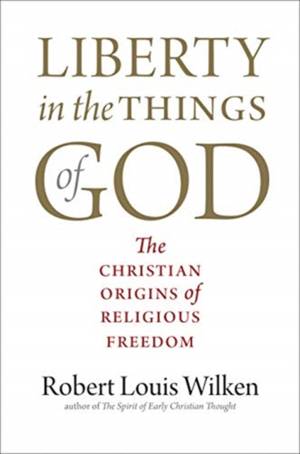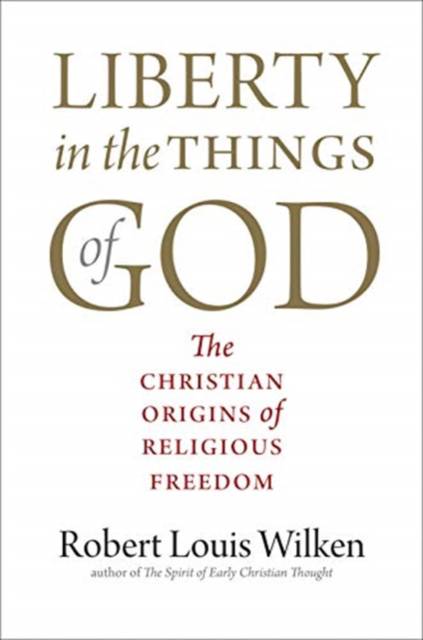
- Afhalen na 1 uur in een winkel met voorraad
- Gratis thuislevering in België vanaf € 30
- Ruim aanbod met 7 miljoen producten
- Afhalen na 1 uur in een winkel met voorraad
- Gratis thuislevering in België vanaf € 30
- Ruim aanbod met 7 miljoen producten
Zoeken
Liberty in the Things of God
The Christian Origins of Religious Freedom
Robert Louis Wilken
Hardcover | Engels
€ 26,95
+ 53 punten
Uitvoering
Omschrijving
From one of the leading historians of Christianity comes this sweeping reassessment of religious freedom, from the church fathers to John Locke
In the ancient world Christian apologists wrote in defense of their right to practice their faith in the cities of the Roman Empire. They argued that religious faith is an inward disposition of the mind and heart and cannot be coerced by external force, laying a foundation on which later generations would build.
Chronicling the history of the struggle for religious freedom from the early Christian movement through the seventeenth century, Robert Louis Wilken shows that the origins of religious freedom and liberty of conscience are religious, not political, in origin. They took form before the Enlightenment through the labors of men and women of faith who believed there could be no justice in society without liberty in the things of God. This provocative book, drawing on writings from the early Church as well as the sixteenth and seventeenth centuries, reminds us of how "the meditations of the past were fitted to affairs of a later day."
In the ancient world Christian apologists wrote in defense of their right to practice their faith in the cities of the Roman Empire. They argued that religious faith is an inward disposition of the mind and heart and cannot be coerced by external force, laying a foundation on which later generations would build.
Chronicling the history of the struggle for religious freedom from the early Christian movement through the seventeenth century, Robert Louis Wilken shows that the origins of religious freedom and liberty of conscience are religious, not political, in origin. They took form before the Enlightenment through the labors of men and women of faith who believed there could be no justice in society without liberty in the things of God. This provocative book, drawing on writings from the early Church as well as the sixteenth and seventeenth centuries, reminds us of how "the meditations of the past were fitted to affairs of a later day."
Specificaties
Betrokkenen
- Auteur(s):
- Uitgeverij:
Inhoud
- Aantal bladzijden:
- 248
- Taal:
- Engels
Eigenschappen
- Productcode (EAN):
- 9780300226638
- Verschijningsdatum:
- 9/04/2019
- Uitvoering:
- Hardcover
- Formaat:
- Genaaid
- Afmetingen:
- 155 mm x 236 mm
- Gewicht:
- 544 g

Alleen bij Standaard Boekhandel
+ 53 punten op je klantenkaart van Standaard Boekhandel
Beoordelingen
We publiceren alleen reviews die voldoen aan de voorwaarden voor reviews. Bekijk onze voorwaarden voor reviews.











